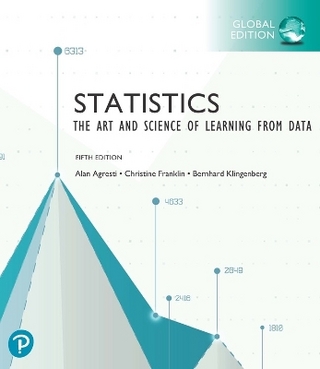
A Classical Introduction to Galois Theory
John Wiley & Sons Inc (Hersteller)
978-1-118-33681-6 (ISBN)
- Keine Verlagsinformationen verfügbar
- Artikel merken
This book provides an introduction to Galois theory and focuses on one central theme - the solvability of polynomials by radicals. Both classical and modern approaches to the subject are described in turn in order to have the former (which is relatively concrete and computational) provide motivation for the latter (which can be quite abstract). The theme of the book is historically the reason that Galois theory was created, and it continues to provide a platform for exploring both classical and modern concepts. This book examines a number of problems arising in the area of classical mathematics, and a fundamental question to be considered is: For a given polynomial equation (over a given field), does a solution in terms of radicals exist? That the need to investigate the very existence of a solution is perhaps surprising and invites an overview of the history of mathematics. The classical material within the book includes theorems on polynomials, fields, and groups due to such luminaries as Gauss, Kronecker, Lagrange, Ruffini and, of course, Galois. These results figured prominently in earlier expositions of Galois theory, but seem to have gone out of fashion.
This is unfortunate since, aside from being of intrinsic mathematical interest, such material provides powerful motivation for the more modern treatment of Galois theory presented later in the book. Over the course of the book, three versions of the Impossibility Theorem are presented: the first relies entirely on polynomials and fields, the second incorporates a limited amount of group theory, and the third takes full advantage of modern Galois theory. This progression through methods that involve more and more group theory characterizes the first part of the book. The latter part of the book is devoted to topics that illustrate the power of Galois theory as a computational tool, but once again in the context of solvability of polynomial equations by radicals.
STEPHEN C. NEWMAN, MD, MSc, is Professor Emeritus of Psychiatry at the University of Alberta, Canada. He has published widely in psychiatric epidemiology and epidemiologic methods. Dr. Newman is the author of Biostatistical Methods in Epidemiology (Wiley).
PREFACE xi 1 CLASSICAL FORMULAS 1 1.1 Quadratic Polynomials / 3 1.2 Cubic Polynomials / 5 1.3 Quartic Polynomials / 11 2 POLYNOMIALS AND FIELD THEORY 15 2.1 Divisibility / 16 2.2 Algebraic Extensions / 24 2.3 Degree of Extensions / 25 2.4 Derivatives / 29 2.5 Primitive Element Theorem / 30 2.6 Isomorphism Extension Theorem and Splitting Fields / 35 3 FUNDAMENTAL THEOREM ON SYMMETRIC POLYNOMIALS AND DISCRIMINANTS 41 3.1 Fundamental Theorem on Symmetric Polynomials / 41 3.2 Fundamental Theorem on Symmetric Rational Functions / 48 3.3 Some Identities Based on Elementary Symmetric Polynomials / 50 3.4 Discriminants / 53 3.5 Discriminants and Subfields of the Real Numbers / 60 4 IRREDUCIBILITY AND FACTORIZATION 65 4.1 Irreducibility Over the Rational Numbers / 65 4.2 Irreducibility and Splitting Fields / 69 4.3 Factorization and Adjunction / 72 5 ROOTS OF UNITY AND CYCLOTOMIC POLYNOMIALS 80 5.1 Roots of Unity / 80 5.2 Cyclotomic Polynomials / 82 6 RADICAL EXTENSIONS AND SOLVABILITY BY RADICALS 89 6.1 Basic Results on Radical Extensions / 89 6.2 Gauss's Theorem on Cyclotomic Polynomials / 93 6.3 Abel's Theorem on Radical Extensions / 104 6.4 Polynomials of Prime Degree / 109 7 GENERAL POLYNOMIALS AND THE BEGINNINGS OF GALOIS THEORY 117 7.1 General Polynomials / 117 7.2 The Beginnings of Galois Theory / 124 8 CLASSICAL GALOIS THEORY ACCORDING TO GALOIS 135 9 MODERN GALOIS THEORY 151 9.1 Galois Theory and Finite Extensions / 152 9.2 Galois Theory and Splitting Fields / 156 10 CYCLIC EXTENSIONS AND CYCLOTOMIC FIELDS 171 10.1 Cyclic Extensions / 171 10.2 Cyclotomic Fields / 179 11 GALOIS'S CRITERION FOR SOLVABILITY OF POLYNOMIALS BY RADICALS 185 12 POLYNOMIALS OF PRIME DEGREE 192 13 PERIODS OF ROOTS OF UNITY 200 14 DENESTING RADICALS 225 15 CLASSICAL FORMULAS REVISITED 231 15.1 General Quadratic Polynomial / 231 15.2 General Cubic Polynomial / 233 15.3 General Quartic Polynomial / 236 APPENDIX A COSETS AND GROUP ACTIONS 245 APPENDIX B CYCLIC GROUPS 249 APPENDIX C SOLVABLE GROUPS 254 APPENDIX D PERMUTATION GROUPS 261 APPENDIX E FINITE FIELDS AND NUMBER THEORY 270 APPENDIX F FURTHER READING 274 REFERENCES 277 INDEX 281
| Verlagsort | New York |
|---|---|
| Sprache | englisch |
| Maße | 152 x 229 mm |
| Gewicht | 943 g |
| Themenwelt | Mathematik / Informatik ► Mathematik ► Algebra |
| ISBN-10 | 1-118-33681-X / 111833681X |
| ISBN-13 | 978-1-118-33681-6 / 9781118336816 |
| Zustand | Neuware |
| Haben Sie eine Frage zum Produkt? |
aus dem Bereich

